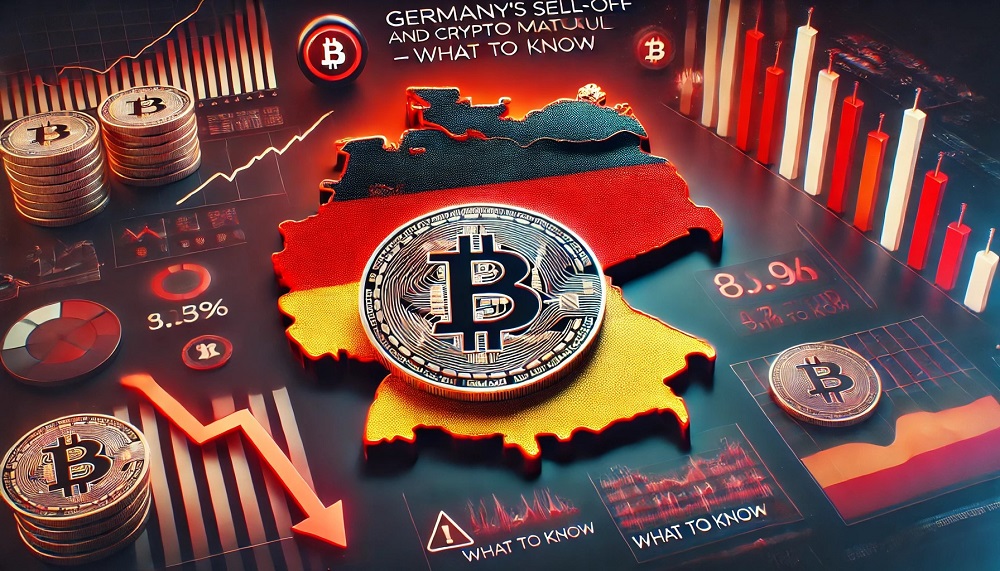On June 20 and 21, the cryptocurrency market experienced a sharp downturn, with its overall market capitalization falling by 3.9% to $2.34 trillion. This downtrend affected the leading cryptocurrencies, driving the market to its lowest point in five weeks.
The decline in Bitcoin’s (BTC) price was 4.2%, while Ether (ETH) lost 4% and BNB (BNB) fell 4.2%. There were several intraday rallies, but overall sentiment stayed negative.
Germany’s Bitcoin Sales Narrative
Preliminary speculations linked the decline in the cryptocurrency market to a significant Bitcoin auction by the German government. However, a closer examination showed that this explanation was not the case.
The main cause of the decrease was traditional finance investors’ reactions to alarming macroeconomic data. According to the on-chain crypto analytics company Arkham, the German government-affiliated wallet sent 6,500 BTC (worth approximately $425 million) to exchanges.
The wallet allegedly held nearly 50,000 BTC, which many claimed was seized from the now-defunct Movie2k (2013) – an illegal movie website. The fact that Kraken, Bitstamp, and Coinbase are the transfer’s destinations lent more credence to the claim of a government-led auction.
However, this story falls apart when one considers the substantial purchasing activity from key participants. On June 20, US business analytics company MicroStrategy revealed that it had purchased an extra 11,931 BTC for $786 million. This large purchase successfully countered the Germany-auctioned sell-off, which included a net outflow of $292 million over two days from US spot BTC exchange-traded funds.
Macroeconomic Conditions and Investor Sentiments
A deeper explanation includes the lack of noteworthy regulatory developments or events that affected investor sentiment. Notwithstanding their current decoupling, cryptocurrencies typically correlate with the S&P 500 index in uncertain times.
Numerous factors contributed to the significant market correction. One such factor was the $5.5 trillion shift in cash flow on June 21 due to the quarterly expiration of stock, index options, and futures contracts in the US stock market (the “triple witching”) event. At the same time, the S&P 500 was getting close to its all-time high, which increased concerns about a possible recession brought on by declining economic indicators.
Other Macroeconomic Factors
Furthermore, the Purchasing Managers’ Index (PMI) for France, Germany, and the UK showed lower-than-expected numbers, pointing to slower development in the manufacturing and services sectors. In addition, Japan’s inflation rate rose from 2.5% in April to 2.8% in May, while concerns around the ceiling on US debt made matters worse.
According to Reuters, Gennadiy Goldberg, head of TD Securities’ US rates strategy, a sovereign credit rating drop could result in another government shutdown brought on by the debt ceiling, suspended until 2025. The growing 5-year credit default swaps on US sovereign debt exacerbated this concern.
Revolutionize your trading strategy with Quantum Income PRO, an AI system designed to adapt to market changes and capitalize on profitable opportunities around the clock.
